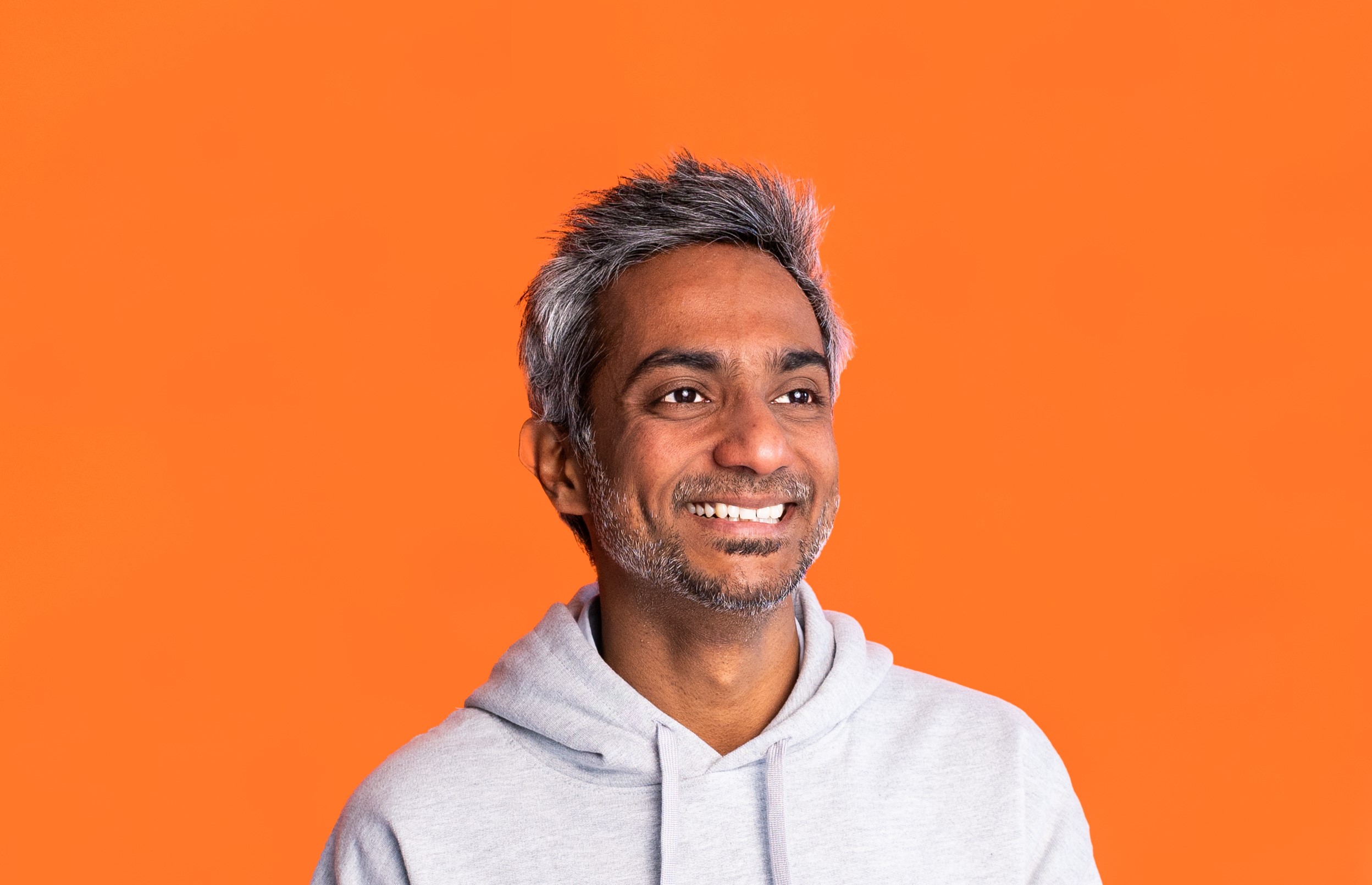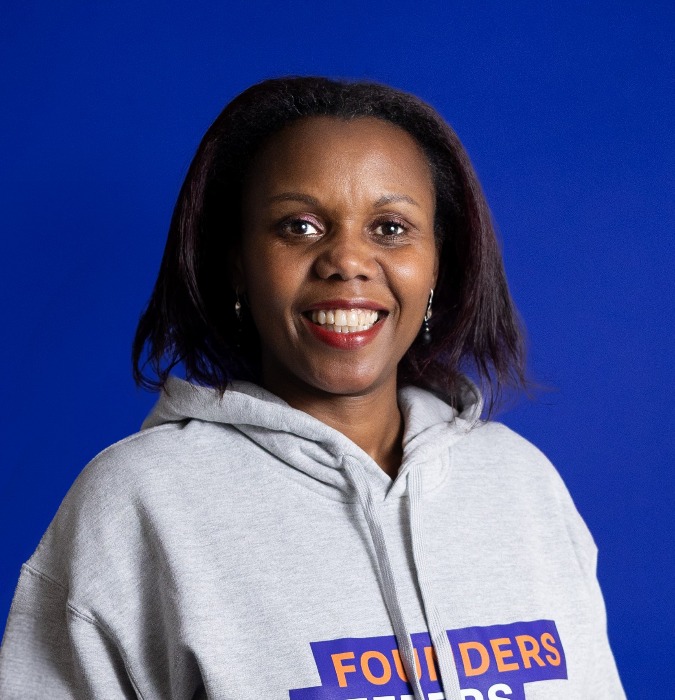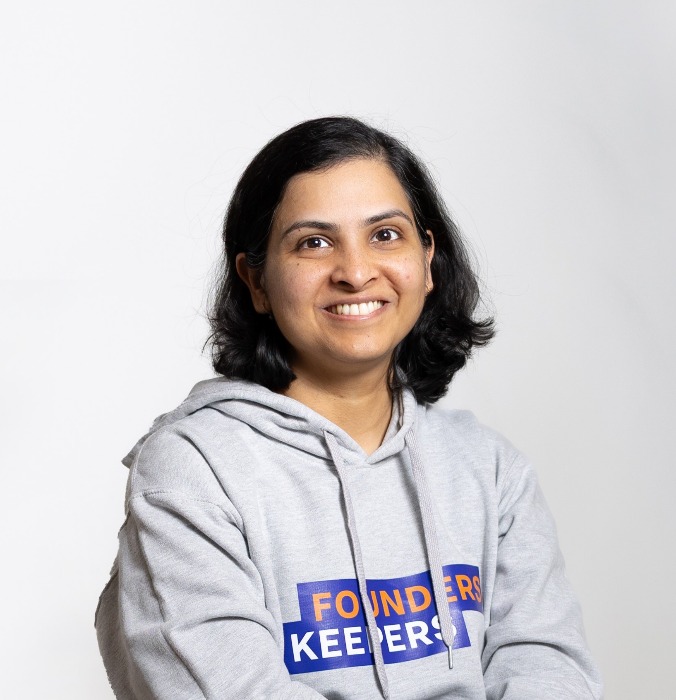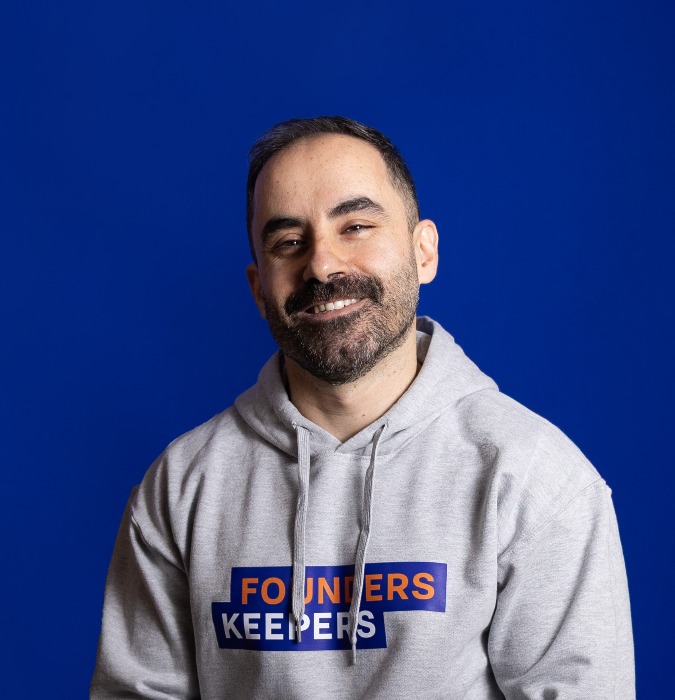Product sustainability data for retailers
“We saw the opportunity and jumped on it.”

From India to Europe
Armed with dual master’s degrees in Sustainability and Mechanical Engineering from the U.S., Ajay started his career in data science at Ford. Later, in Amsterdam, he founded Green Insights, a sustainability consulting firm. Working with major food brands on their supply chain impact revealed a crucial gap: companies wanted control of their impact data but were dependent on their suppliers to get it. The ideal solution, tracking impact per product, was too time-consuming to do manually.
“Luckily, a disruptive new AI technology, GPT, was being invented right around then. We saw the opportunity and jumped on it to solve impact tracking at scale.”
AI for scalability
GreenSwapp AI developed a comprehensive database of ingredient impacts using machine learning, based on decades of published LCA research. After testing end-consumer demand with the world’s first climate-transparent supermarket, the company shifted focus to B2B.
Now, GreenSwapp AI works with major retailers like Ekoplaza, Albert Heijn, and Crisp. Their AI tech helps supermarkets extract and structure vast amounts of supplier data and reduce environmental impact, while also working on ways to share this information with consumers on price tags and receipts. “It’s like the Nutri-Score, but for climate.”
Challenges in the Netherlands
Finding early-stage funding wasn’t easy. The Dutch venture capital ecosystem favors low-risk and late-stage investments, while imposing a disproportionately high burden of proof on early-stage startups. “Hiring is expensive, and the Dutch work culture doesn’t always align with the fast-paced demands of a startup. On top of that, getting a recognized sponsorship status to hire skilled labor is tricky. You need revenue to qualify, but you need skilled talent to generate that revenue. That poses additional complications.”
Tips for aspiring entrepreneurs
Ajay emphasizes focusing on solving customer problems over building perfect products. While funding in the Netherlands can be a challenge, its digital infrastructure, freedom of travel and cosmopolitan environment make it easy for startups to attract talent. He advocates for direct, upfront financial support through the Startup Visa program over the typical tax credits and future benefits. Ajay suggests that could bridge the early-stage funding gap and create more Series A-ready startups that appeal to Dutch investors.
startup info
- company website
- Netherlands Point of Entry
Founders Keepers
Over the past decade, the Netherlands has welcomed bold, visionary founders from around the world. In Founders Keepers, we share the stories of ten innovative entrepreneurs—one from each year—who made the Netherlands their base to build, scale, and redefine industries. From climate tech to digital health, their journeys show what’s possible when driven people find the right place to grow their ideas.


